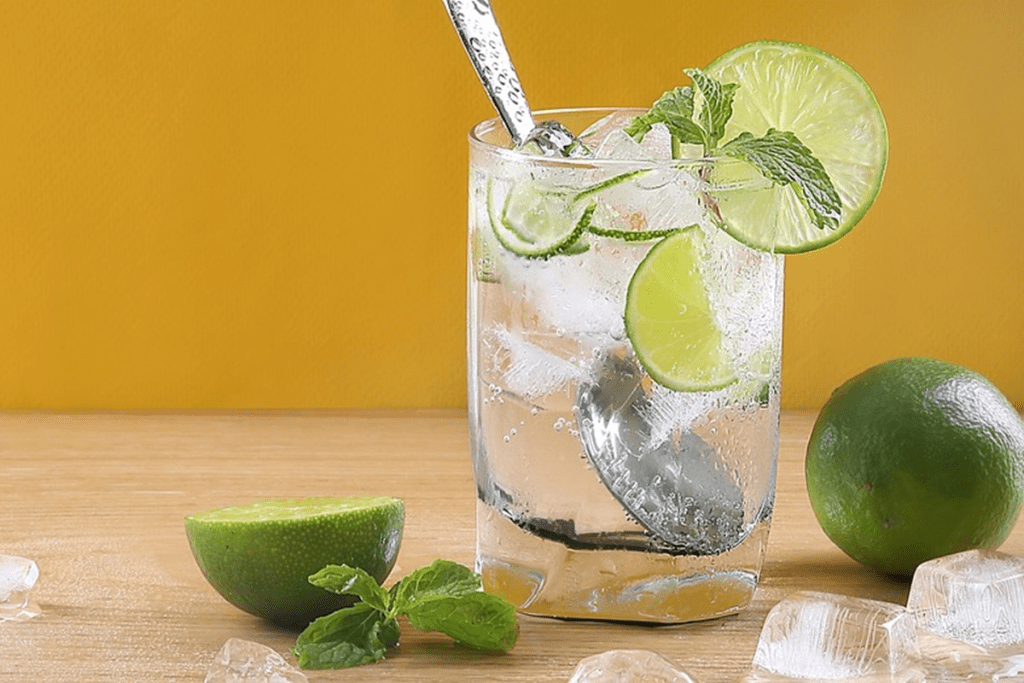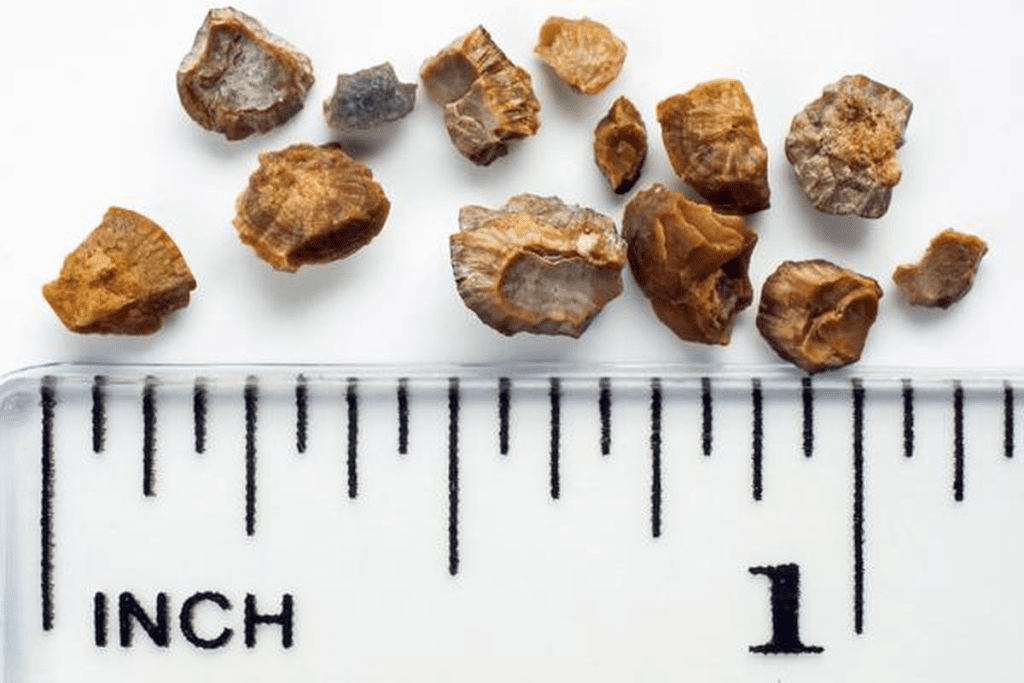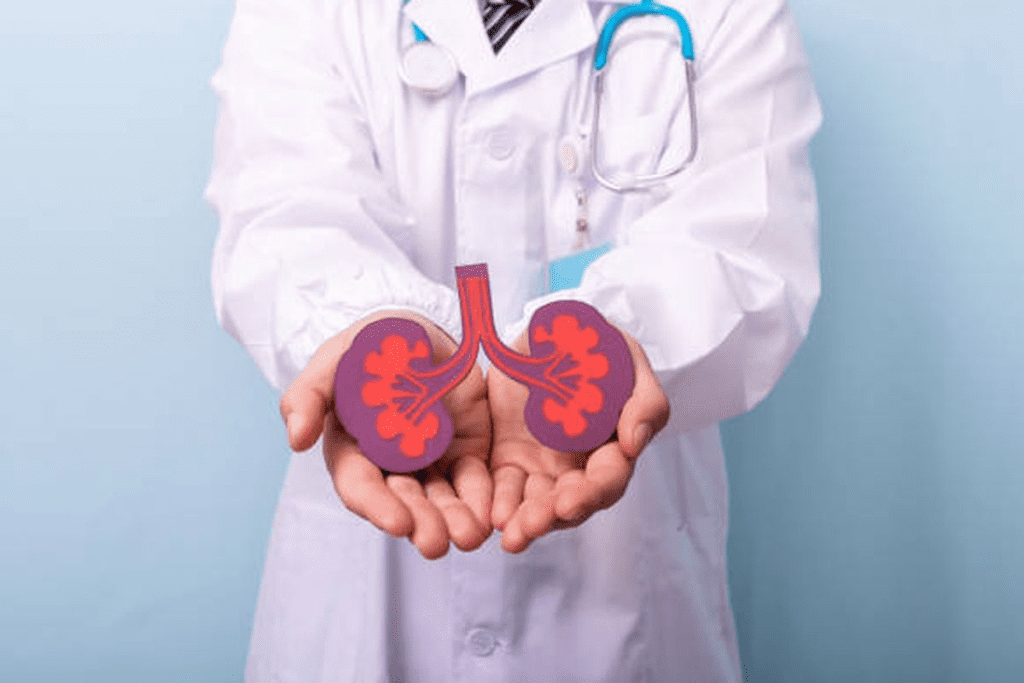Last Updated on October 31, 2025 by

Did you know your favorite drink might be causing kidney stones? At LIV Hospital, we stress the need to choose your drinks wisely for kidney health. Some drinks can raise your risk of kidney stones, a painful condition known as nephrolithiasis disease. Can your diet, including factor meals, affect kidney stones? Discover the ultimate guide to the drinks you must avoid for kidney health.
Drinking enough fluids helps urine flow smoothly. This helps remove minerals from your body, preventing stones. To avoid kidney stones, know which drinks to limit. Dark colas, sugary sodas, and some fruit juices are risky, based on medical studies and our care mission.
To prevent kidney stones, it’s key to know how they form and what causes them. Kidney stones are hard deposits made of minerals and salts. Calcium oxalate stones are the most common type. Their formation is influenced by many factors.

Kidney stones form when the mineral balance is off. This imbalance leads to mineral crystallization. Not drinking enough water can cause urine to concentrate, making stones more likely to form. Dehydration is a big risk factor because it makes urine more concentrated.
What we eat also affects kidney stone risk. Eating foods high in oxalate, like spinach and beets, can raise the risk of calcium oxalate stones. Also, not eating enough calcium-rich foods can lead to more oxalate absorption, increasing the risk.
Many factors can lead to kidney stones, including genetics, diet, and medical conditions. Drinking two or more servings of cola a day can raise the risk of kidney stones and chronic kidney disease. This is because of the phosphoric acid and high sugar in cola.
“A diet high in animal protein and low in fruits and vegetables can increase the risk of kidney stone formation.”
Other risk factors include being overweight, taking certain medications, and urinary tract conditions. Knowing these risk factors is key to preventing stones. By managing these factors, people can lower their risk of getting kidney stones.
Being aware of these risk factors and making smart lifestyle choices can help prevent kidney stones.
Drinking enough water is key to kidney health. It helps dilute urine and lowers mineral concentration, which can cause stones. Keeping well-hydrated is essential for kidney health and preventing stones.
Drinking 2-3 liters of water daily can lower stone risk. Fluids keep urine diluted, preventing harmful materials. Adequate hydration helps the kidneys filter waste and toxins well.
Some key benefits of proper fluid intake include:
Dehydration makes urine more concentrated, raising stone risk. Without enough fluids, the kidneys can’t work right. This leads to more minerals in urine, making stones more likely.
To avoid dehydration and lower stone risk, drink lots of water. Aim for 2-3 liters daily. Needs can vary based on climate and activity level.

By focusing on hydration, you can lower kidney stone risk. Drinking enough water is a simple way to protect your kidneys.
Dark colas are a big worry for people who get kidney stones. They have a lot of sugar and phosphoric acid. Drinking two or more colas a day can raise the risk of kidney stones and disease.
The chemicals and sugar in colas can cause dehydration. This makes the risk even higher.
Phosphoric acid in dark colas is harmful. It can change the urine’s chemistry, making stones more likely. A diet with too much phosphoric acid can also upset calcium and phosphate levels, harming the kidneys.
Research shows that dark colas can increase kidney stone risk. Phosphoric acid in these drinks can lead to more calcium in the urine, a key stone component.
Studies link cola drinks to a higher risk of chronic kidney disease. The sugar in these drinks can cause obesity and diabetes, both of which are risks for kidney disease. Phosphoric acid in dark colas can also harm kidney function over time.
A study found that drinking two or more colas daily raises the risk of chronic kidney disease. This risk is higher even with other factors like age, hypertension, and diabetes considered.
To reduce risks from dark colas, limit them a lot. People at risk of kidney stones or disease should avoid dark colas.
If quitting dark colas is hard, aim for no more than one serving a week. Drinking plenty of water and other kidney-friendly drinks can help balance out the effects of occasional cola drinking.
Choosing lighter-colored sodas or seltzer water might be safer. But remember to watch your sugar intake and choose unsweetened or naturally sweetened drinks when you can.
Sugary drinks are a big problem for people who get kidney stones. It’s key to know which ones to avoid. Drinking too much sugar can mess up how your kidneys work and raise your risk of getting stones.
Many fruit juices from stores have a lot of added sugar. This can slow down how your kidneys filter things. Even though they seem healthy, their sugar can harm your kidneys. It’s better to choose juices you make yourself or water down store-bought ones to cut down on sugar.
Key concerns with store-bought fruit juices include:
Sugary sodas also raise your risk of getting kidney stones. Their sugar can lead to more stones. Plus, the phosphoric acid in many sodas makes your urine more acidic, which is bad for stones.
To lower your risk, try to drink less or no sugary sodas. Instead, drink seltzer water or unsweetened tea.
Many popular drinks have hidden sugars that are bad for your kidneys. Flavored coffees, sports drinks, and some teas have a lot of sugar. Always check the labels to know how much sugar is in what you drink.
Some hidden sources of sugar include:
By watching out for these hidden sugars and making smart choices, we can lower our risk of kidney stones. This helps keep our kidneys healthy.
Moderation is key when it comes to caffeine and kidney health. Coffee and black tea, popular worldwide, have complex effects on the body. They are not just about caffeine but also contain oxalate, which can increase kidney stone risk.
Coffee and black tea are rich in caffeine and oxalate. Oxalate content is a big concern because high levels can lead to kidney stones.
Oxalate in coffee and black tea can raise the risk of kidney stones. Oxalate binds with calcium in urine, forming crystals that can turn into stones. Individuals prone to kidney stones should watch their oxalate intake closely.
Research shows that moderate drinking of these beverages might not raise the risk for everyone. But excessive intake can lead to dehydration and higher oxalate levels, both of which increase stone risk.
Caffeine is a diuretic, causing the body to lose water. This dehydration can concentrate urine, raising the risk of stones. Caffeine also increases oxalate levels in urine, making it harder to prevent stones.
But, moderate caffeine might also protect the kidneys by improving blood flow. The goal is to find a balance that suits each person.
For coffee and black tea fans, there are ways to reduce their impact on kidney health. Monitoring overall caffeine intake and staying hydrated are key steps.
By being mindful of caffeine intake and staying hydrated, you can enjoy your favorite drinks while reducing kidney stone risk.
Some drinks can raise the risk of getting kidney stones. It’s key to know which ones. Alcohol and energy drinks are two that can dry out our bodies.
Drinking alcohol can make us lose water, which is bad for our kidneys. This loss of water can make minerals in our urine stick together and form stones. Also, alcohol can make us gain weight, which increases the risk of stones.
To lower this risk, drink less alcohol and drink more water. Knowing the risks can help us make better choices.
Energy drinks can also dry us out. They have a lot of caffeine and other stimulants that make us pee more. This can lead to dehydration if we don’t drink enough water. Some energy drinks also have oxalate, which can help stones form.
If you like to drink or have energy drinks, there are better choices. Try low-oxalate drinks like some teas or infused water. Also, drink lots of water to fight off dehydration from these drinks.
Some safer alternatives include:
By choosing hydrating drinks, we can lower the risk of kidney stones. We can enjoy social times without harming our health.
Choosing the right drinks is key to avoiding kidney stones. Drinking at least 2-3 liters of water daily can greatly reduce the risk of stones. We’ll look at ways to make staying hydrated fun and easy.
Make water more appealing by adding slices of lemon, lime, or orange. Cucumber or mint leaves can also give it a nice twist.
Water enhancement strategies can really help. Infusing water with fruits or herbs adds flavor without extra sugar or calories. Try strawberry and basil or grapefruit and rosemary for a tasty change.
While water is best, other low-oxalate drinks are good too. Try low-oxalate juices like apple or grapefruit in small amounts.
To drink enough, use a hydration app or phone reminders. Keeping track helps you stay hydrated and build good habits.
Hydration tracking tips include setting daily goals and tracking your progress. A physical log can also help you remember to drink water all day.
To prevent kidney stones, you need a plan that includes avoiding bad drinks and staying hydrated. LIV Hospital focuses on top-notch medical care, including kidney stone treatment. Drinking 3 liters of fluid daily is key to lowering your risk of kidney stones.
Adding prevention strategies to your daily life can help a lot. Watch what you eat and drink, and think about taking supplements like calcium citrate and potassium citrate. Knowing which drinks are risky and making better choices can help keep your kidneys healthy for the long run.
Working with doctors can help you create a prevention plan that fits you. At LIV Hospital, we aim to give you the best care and advice for your kidney health.
The most common kidney stone is calcium oxalate. Knowing your stone type helps in making diet changes to avoid future stones.
Drink enough water to make at least two liters of urine a day. This helps dilute your urine and lowers mineral concentration that can form stones.
Yes, foods like dairy, leafy greens, and fortified plant milk are good. Calcium citrate supplements can also help. But, talk to a doctor before adding supplements.
Drinking coffee and tea in moderation is okay. But too much can cause dehydration and increase oxalate levels. Drinking plenty of water helps balance this.
Water is best for staying hydrated. Low-oxalate drinks like lemon juice or herbal teas are also good. Adding lemon, lime, or cucumber to water can make it taste better.
Eating a lot of red meat and certain seafood increases the risk of stone risk, mainly uric acid stones. Eating less of these foods can lower your risk.
Yes, potassium citrate can prevent some stones. It makes your urine less acidic and increases citrate levels, which stops stones from forming.
Nephrolithiasis is kidney stone disease. It’s when stones form in the kidneys, causing pain and other problems if not treated.
Check your urine color to see if you’re drinking enough. It should be pale yellow. Use a hydration app or log to keep track of your water intake.
Subscribe to our e-newsletter to stay informed about the latest innovations in the world of health and exclusive offers!